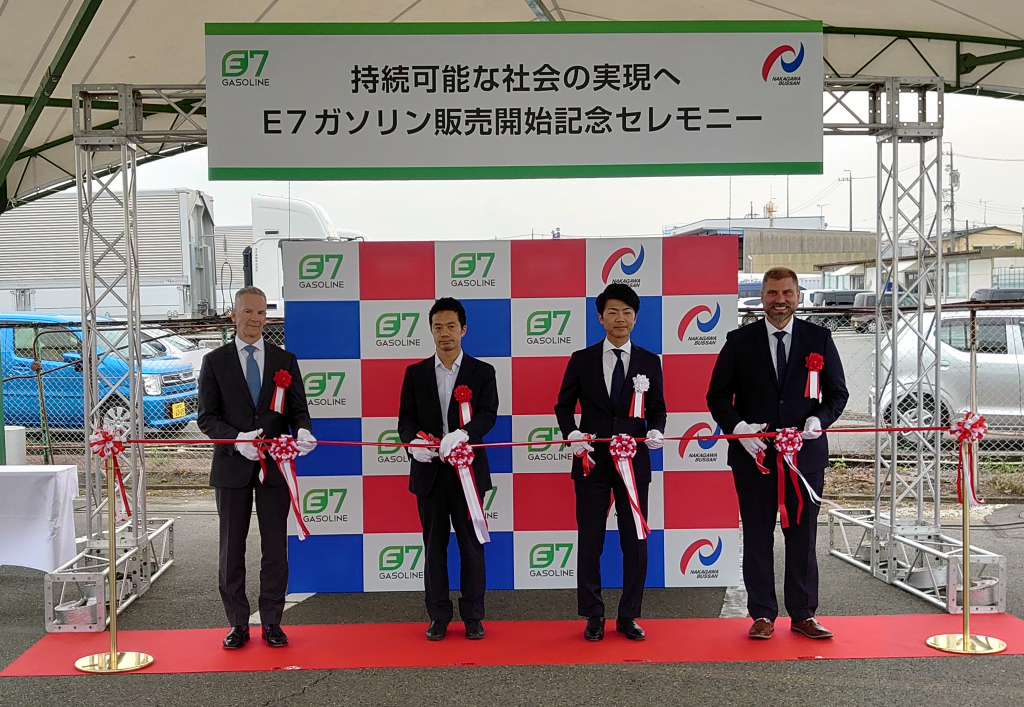While in Japan for the U.S. Department of Agriculture’s Agricultural Trade Mission (USDA’s ATM) last week, the U.S. Grains Council (USGC) delegation witnessed the opening of the first E7 fueling station in Japan. The unveiling of this pioneering project showcases the country’s commitment to adopt sustainable fuel solutions.
“Nakagawa Bussan, a gasoline blender and retailer in central Japan, is the only Japanese gasoline retailer that has been selling E3 gasoline. For more than 10 years, Nakagawa has been selling around 40 million gallons of E3 gasoline per year, which includes 1.2 million gallons of ethanol from the United States. The retailer aims to continue contributing positively to the environment by selling gasoline blended with more ethanol,” said Tommy Hamamoto, USGC director in Japan.
Narumi Hosokawa from Japan’s Ministry of Economy, Trade and Industry (METI) celebrated the launch, stating the fuel station is an important pilot project to ethanol utilization for decarbonization of liquid fuel and future e-fuel commercialization.
Hamamoto and Stella Qian, USGC senior manager of global ethanol market development, along with Collin Watters, director of exports and logistics for the Illinois Corn Marketing Board, and Mike Lorenz, senior vice president of market development for Growth Energy, helped support the USDA’s ATM, led by Under Secretary Alexis Taylor, by promoting direct blending of ethanol, its new uses and engaging with stakeholders in the country.
“During these meetings, the delegation presented valuable information and insights regarding the benefits of ethanol direct blending and the latest updates of the U.S. ethanol industry’s carbon reduction efforts,” said Qian. “The team emphasized how ethanol could contribute significantly to Japan’s sustainability goals while diversifying energy sources and providing energy security. The discussions fostered a fruitful exchange of ideas and strategies to further promote the use of biofuels in Japan.”
This mission laid a solid foundation for future Council initiatives aimed at reducing the carbon footprint in Japan’s transportation sector. The Council looks forward to continuing to work closely with its partners in Japan.
About The U.S. Grains Council
The U.S. Grains Council develops export markets for U.S. barley, corn, sorghum and related products including distiller’s dried grains with solubles (DDGS) and ethanol. With full-time presence in 28 locations, the Council operates programs in more than 50 countries and the European Union. The Council believes exports are vital to global economic development and to U.S. agriculture’s profitability. Detailed information about the Council and its programs is online at www.grains.org.

